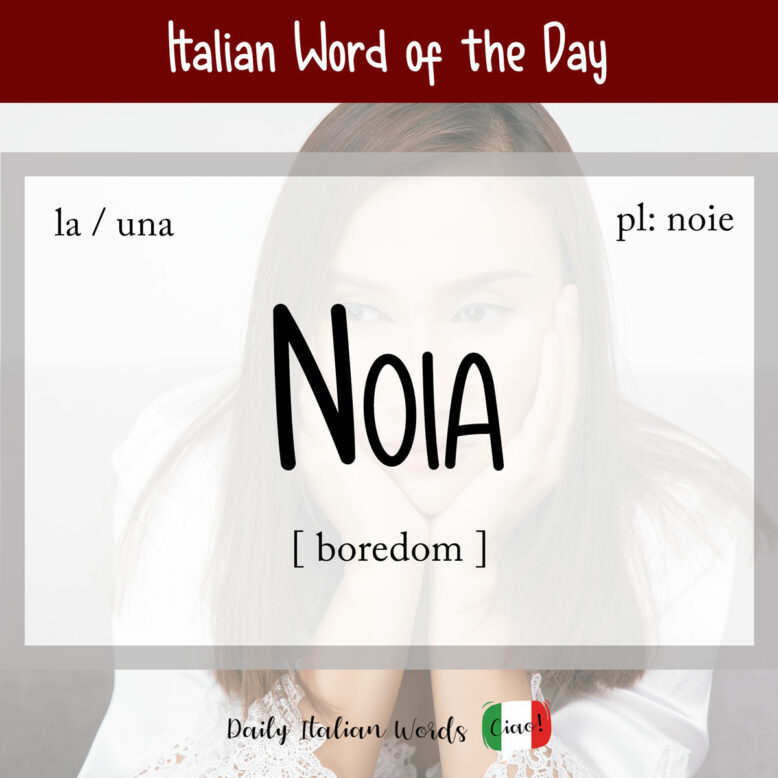You might already know the verb annoiarsi (to be bored), but you’re less likely to have come across the noun noia (boredom / bore). I was inspired to write about this word because it’s the title of Italy’s Eurovision submission by Angelina Mango!
noia
boredom / bore

The word originates from Provençal enoja, derived from enojar, and the Late Latin inodiare meaning to hate.
Noia is a feminine noun that takes the following definite and indefinite articles:
- la noia = the boredom
- una noia = a boredom
- le noie = the boredoms
- delle noie = some boredoms
Continua a sbadigliare per la noia.
He keeps yawning from boredom.
In addition to boredom, noia also carries the figurative meaning of bother, annoyance, trouble, problem and issue. Indeed, you’ll notice that the English word annoyance bears a striking resemblance to noia. That’s because its etymology can also be traced back to the Latin inodiare via French.
Ho avuto delle noie all’aeroporto.
I had some trouble at the airport.
Smettila di dar noia a tuo fratello!
Stop annoying your brother!
You will often see noia used, literally and figuratively, in the company of the following verbs:
- venire a noia = to become unbearable / tiresome
- ammazzare la noia = to relieve the boredom (literally “to kill the boredom”)
- vincere la noia = to relieve the boredom (literally “to win over boredom”)
- dar(e) noia = to annoy / to pester
- morire di noia = to die of boredom
- prendere a noia = to be annoyed by
- avere noie con qualcuno / qualcosa = to have problems with someone / something
- ingannare la noia = to escape from boredom
A very common exclamation of frustration in Italian is Che noia! which means What a bore! / How boring!
Che noia questo film!
This film is so boring!
You can also use noia to characterise a person or thing you find dull. In such instances, you might hear expressions like una noia mortale (a dead bore), una noia terribile (a terrible bore), and una tale noia (such a bore).
Luca è una noia mortale.*
Luca is a dead bore.
*Note: you can also say the phrase above with the addition of the preposition di (Luca è di una noia mortale).

Before we conclude this article, let’s take a moment to listen to the hit song that served as the inspiration behind it. Do you believe it stands a chance at Eurovision this year?
Heather Broster is a graduate with honours in linguistics from the University of Western Ontario. She is an aspiring polyglot, proficient in English and Italian, as well as Japanese, Welsh, and French to varying degrees of fluency. Originally from Toronto, Heather has resided in various countries, notably Italy for a period of six years. Her primary focus lies in the fields of language acquisition, education, and bilingual instruction.


